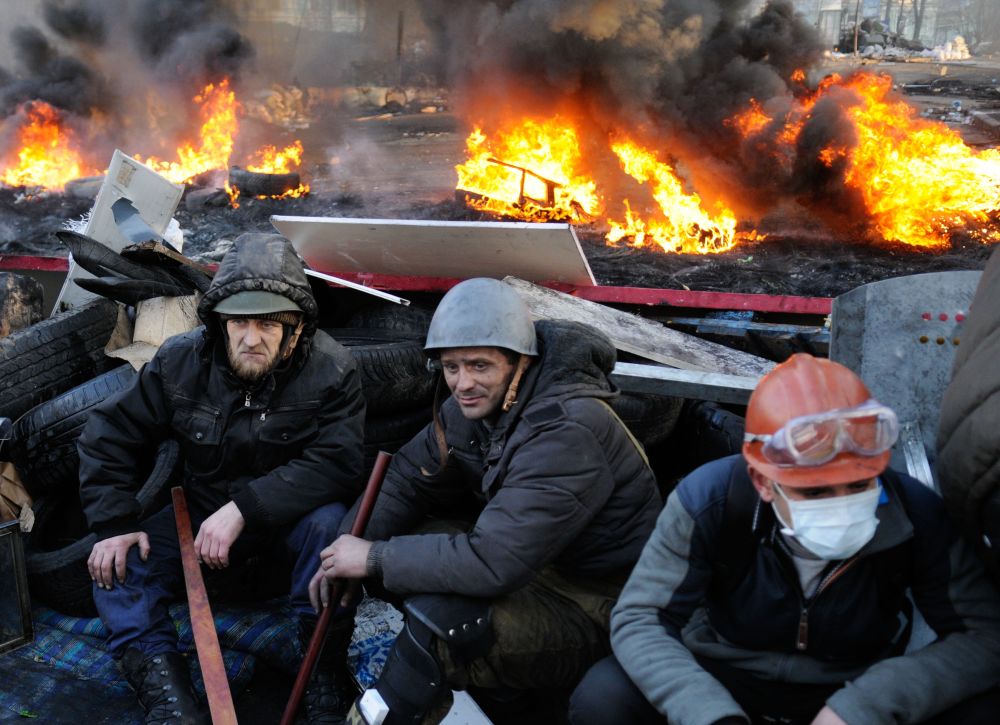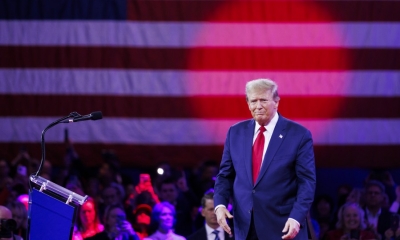Western Lies and Information War Intensify

The new term is ‘cognitive warfare’ and it relates to a much more expansive approach to information warfare with special focus on the Internet generally and on social media especially.
Multipolarity is deepening while Western power fades. To defend sovereignty and development and to promote peaceful coexistence, nations of the Global Majority must strengthen their discourse capacity.
Today, the unipolar world of U.S. and Western hegemony is in the process of being replaced by a “multipolar” international system. Some refer to this process as leading to a “polycentric” world order and others refer to it as a “pluralist” world order. The main feature of this new international situation that is developing before our very eyes are: the rise of China, and Asia as well, and the return of Russia. Also, we see renewed interest by many countries in Non-Alignment and in Peaceful Coexistence.
In this new and evolving international situation, the United States and Europe observably are in relative decline economically, socially, culturally, and militarily. The United States and NATO respond by means of economic warfare and information warfare.
While the Western strategy of economic warfare is well known by now, information warfare is less well known. The international community, however, does sense the never ending and intensifying stream of Western lies spread globally by Western media. Topics such as China’s domestic affairs – including Taiwan, Xinjiang and Tibet – Russia, Iran and the Ukraine war receive a torrent of negative and malicious coverage from Western media.
Of course, propaganda is nothing new, but in these difficult and dangerous times, concrete action is needed to develop and localize discourse capacity and to strengthen public and private national media outside the West.
China has been a target of Western information warfare on its territories such as Taiwan, Tibet, and Xinjiang. This is directed against China’s leadership and against the Communist Party of China (CPC) itself, as well as against the Chinese model of development and against Chinese foreign policy.
Western information warfare is an obstacle to peace and development and thus an obstacle to the creation of building a “Community with Shared Future”. Such information warfare blocks peaceful coexistence, undermines mutual respect, and upsets non-zero-sum win-win cooperation.

The rise of Western media power and propaganda
The development of modern information warfare began with World War I. The influence of newspapers in the 19th century in Europe and in the United States grew. New technologies involving printing processes and the introduction of photography increased their impact. When World War I came, the just invented radio was a powerful new technology and media platform. It widened and made immediate the dissemination of propaganda by all the participants in the war.
After the war, national radio broadcasting systems were developed in the United Kingdom, Germany, Italy, and Japan especially. More powerful transmission technology increased radio’s global reach. So, when World War II came, this mechanism for information warfare was much more powerful. In that time, information warfare was called “psychological warfare”. All during this time the role of Western press agencies such as Reuters and Associated Press, increased around the world and to this day support Western information warfare.
After World War II, technology advanced with the arrival of satellites and their use for telecommunication and broadcasting. The globalization and domination of Western media was thus enhanced further and increased the spread of Western propaganda.
With the invention of the Internet in recent years, the information warfare landscape has changed once again and has become more complex and ubiquitous.
The development of information warfare
The evolution of propaganda in World War I to psychological warfare in World War II continued during the Cold War. Information war and “information operations” in war fighting and political warfare proceeded apace in the Cold War. Today, information operations are considered part of “combined operations” in warfare such as that in the Western proxy war against Russia using Ukraine. In this war, for example, Western information operations are closely coordinated with the U.S. and NATO.
In recent years, the theoretical development of information warfare and its practical application has been a major undertaking by NATO. During this time, doctrine in the United States further evolved into methods of what is called “perception management”.
The U.S. Defense Department back in 2001 defined perception management. “Actions to convey and/or deny selected information and indicators to foreign audiences to influence emotions, motives, and objective reasoning as well as to intelligence systems at all levels to influence official estimates, ultimately resulting in foreign behaviors and official actions favorable to the originator’s objectives,” the Pentagon said. “In various ways, perception management combines truth projection, operations security, cover and deception, and psychological operations.”
Today, two decades later, information warfare and perception management are combined in a new theoretical and practical development by NATO. The new term is “cognitive warfare” and it relates to a much more expansive approach to information warfare with special focus on the Internet generally and on social media especially.

According to the NATO Innovation Hub, “The Cognitive Domain is a new space of competition, beyond the land, maritime, air, cybernetic and spatial domains.”
Explaining this, a NATO study says, “A social messaging campaign that inflames the passions of online influencers can cause controversies to go viral.” Pointing to social media the study says, “Social media groups may be motivated to organize demonstrations and to take to the street. Official denials or ambiguous public responses in these circumstances can add to confusion and doubt or to entrench conflicting narratives among segments of the populace.”
Non-Western media necessity and opportunities
Keeping an eye on the advancement of technology, and its relation to communication, the profound changes made by Internet offer an instantly global platform for communication. This can be positive as it offers the opportunity for “New Media” to enter the global scene and thus readers and viewers around the world have a variety of publication formats to choose from which can include still images and high-quality video with sound.
As multipolarity evolves there is increasing space for non-Western media. Strengthening such public and private media over time can offset Western global cognitive warfare. Developing discourse capacity in this way helps the international community seek truth from facts. Individuals around the world can have alternate sources of information and news.
Overall, there are many opportunities for the Global Majority, also called the Global South, to develop new and independent media. This brings positive effects such as enhancing people-to-people exchanges and promoting cultural understanding. These effects, in turn, promote peaceful coexistence and appropriate development models.
As universities in the Global South develop their Communications curricula, professional opportunities will open up for graduates. These graduates can then contribute to strengthening of public and private media in their own countries as well as abroad.
The international trend of peace and development and the concept of a Community with Shared Future must be advanced. Countries of the Global Majority must develop their discourse capacity, and thus their discourse power, through vibrant and innovative media both public and private.
The article reflects the author’s opinions, and not necessarily the views of China Focus.
 Facebook
Facebook
 Twitter
Twitter
 Linkedin
Linkedin
 Google +
Google +







